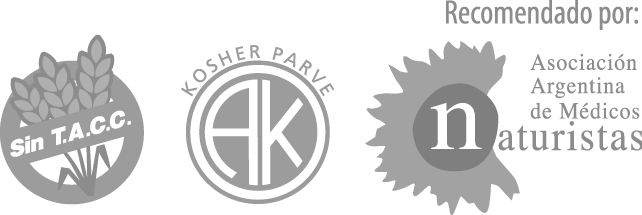Chia
The chemical composition of the seed is typically 20% of protein, 25% of fiber (5% of very high molecular weight soluble fiber) and 34% of oil; 64% of the oil are Omega-3 essential fatty acids.
Unlike other grains, protein amino acids of chia do not have limiting factors in adult people diet.
They do not have gluten, so they are suitable for celiac people. It is not known if they have toxic components.
It has the greatest concentration among known vegetable species of the Omega-3 alpha-linolenic acid, which is an essential fatty acid our metabolism is incapable of producing and, therefore, it is necessary to provide it in an exogenous way (with the diet and chia-rich food supplements).
Essential fatty acids are present in each healthy cell of the body and are critical for the normal growth and functionality of the cells, nerves and organs. Their deficiencies are related to a great variety of problems, including some very important ones, such as heart disease, cancer and diabetes, which is a disorder characterized by a decrease in the production of insulin in the pancreas or the reduction of the cells capability to use insulin efficiently.
Omega-3 reduces the tendency to form clots, since they increase coagulation time, reduces platelet aggregation, blood viscosity and fibrinogen, and increases the erythrocyte deformity.
These fatty acids play a vital role in the management of heart disease and inflammatory phenomena, such as rheumatoid arthritis, and in the reduction of several chronic pathologies, such as asthma. Besides, they are essential during pregnancy, since they are necessary for the development of the retina and the brain. Their beneficial effects have been demonstrated in the reduction of tumor frequency, such as breast and colon cancer.
Tecnobotánica chia seeds are suitable for celiac individuals and have Kosher Parve certification; besides, they are recommended by the Argentine Association of Naturist Doctors (Asociación Argentina de Médicos Naturistas).


